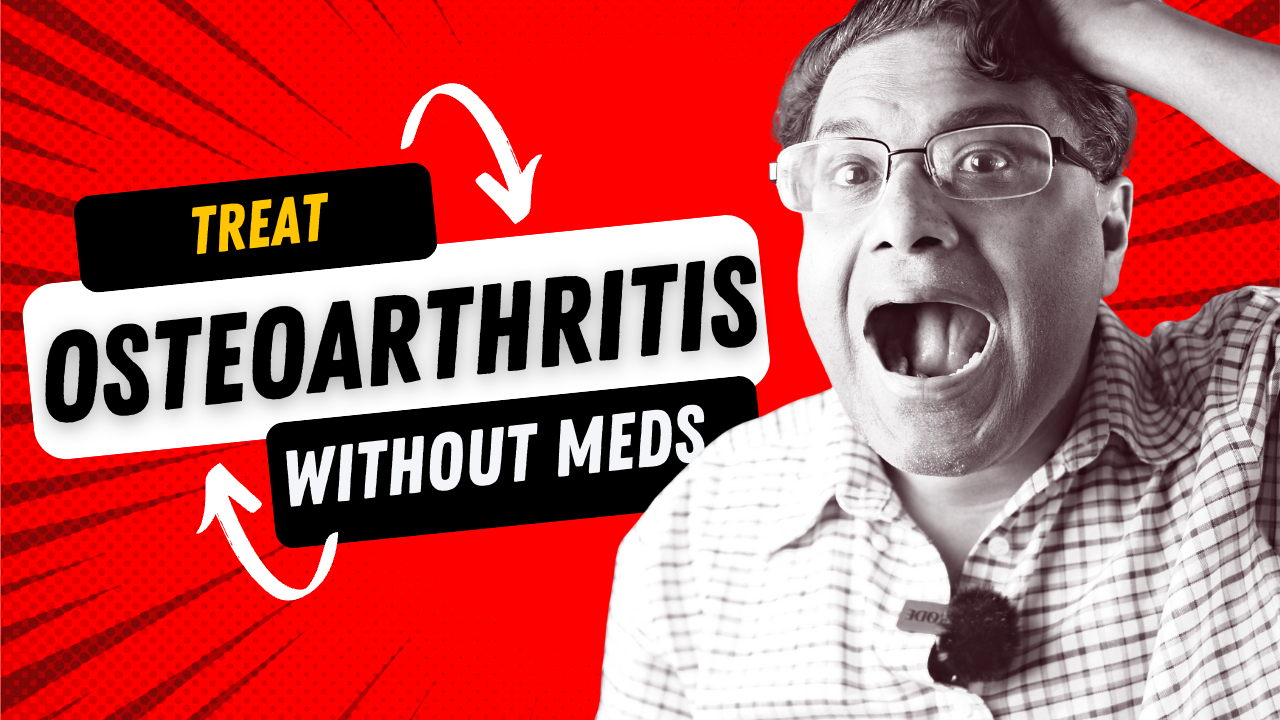Ever felt foggy or down, wondering why your mood and focus are all over the place?
What if I told you that the food on your plate could be the key? What we eat doesn’t just fill our stomachs—it fuels our brains and affects how we think, feel, and even remember.
Let’s explore how the right foods can transform your brain and your life.
1.Brain Basics – How the Brain Works
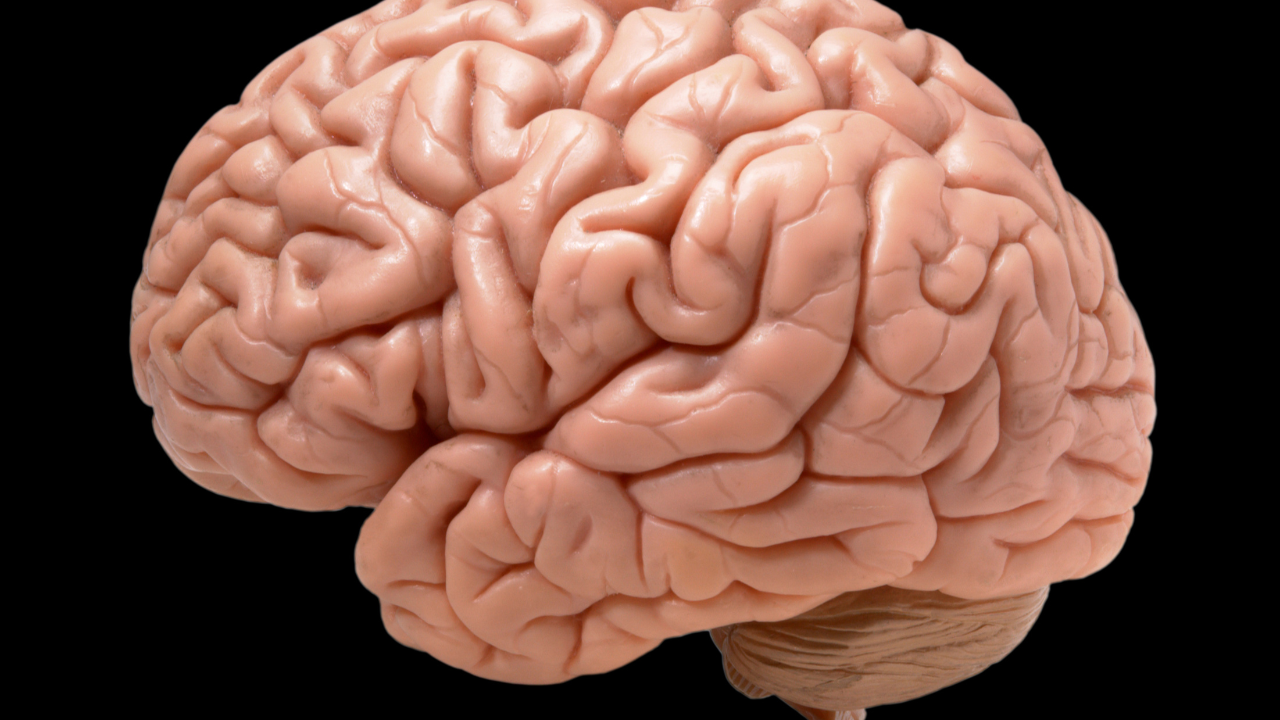
To understand how food affects the brain, we first need to understand a bit about how the brain works. The brain is the most complex organ in our body, controlling everything we think, feel, and do. It’s made up of around 86 billion nerve cells, called neurons, and these neurons communicate with each other through electrical signals. It’s like an extremely complicated, high-speed network where information is constantly being sent back and forth.
But here’s something not everyone knows—our brain uses a lot of energy to keep this network running smoothly. In fact, the brain uses about 20% of the body’s total energy, even though it only makes up 2% of your total weight! And what’s the main source of energy? You guessed it—food.
The brain needs glucose, which comes from the carbohydrates in the food we eat. But not all carbs are created equal. Simple carbs, like those found in sugary snacks and processed foods, can cause quick spikes in blood sugar followed by crashes, making it harder for the brain to stay focused. The brain does not like it if your sugar levels or suddenly very high and then crashed down .It’s like being on a roller coast ride. Who likes being constantly going up and around on a roller coaster forever. My brain does not like it and I’m sure yours doesn’t like it as well!
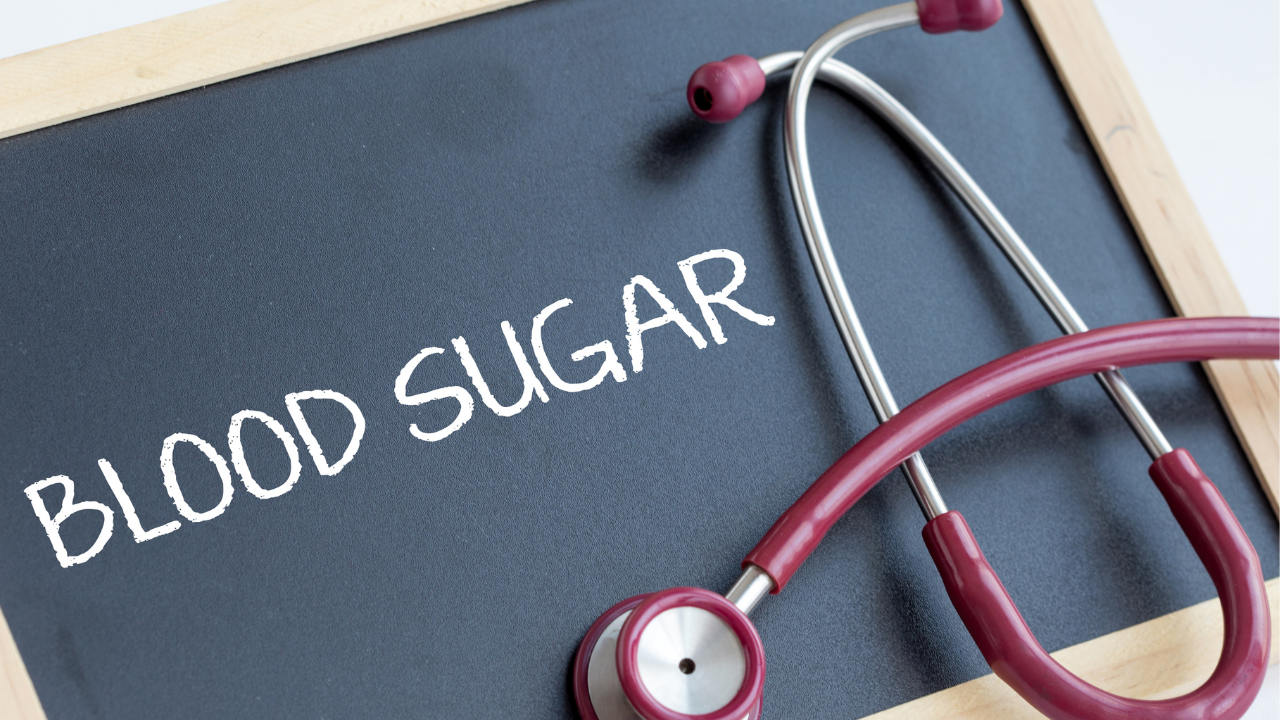
On the other hand, complex carbs, like those in whole grains, fruits, and vegetables, provide a slow and steady release of glucose, keeping your brain fueled and focused throughout the day.
The brain also needs other nutrients to keep its neurons communicating efficiently. These nutrients are the building blocks of neurotransmitters, the chemicals that help carry messages between brain cells. Think of neurotransmitters as the text messages your neurons send to each other. If there’s a problem with the messages, like a weak signal, the whole system can slow down. This is why eating the right nutrients is so important for keeping the brain functioning well and for controlling things like mood, memory, and concentration.
So, what happens if the brain doesn’t get the right fuel? You might experience brain fog, trouble concentrating, mood swings, or even memory problems. In the long run, a poor diet can increase the risk of more serious problems, like mental health disorders, learning difficulties, and neurodegenerative diseases like Alzheimer’s. That’s why the food we eat has such a big impact on how our brain works
2.Nutrients That Boost Brain Power
Now that we understand how much energy the brain needs to function properly, let’s talk about some specific nutrients that are especially important for brain health.
First, healthy fats. The brain is made up of about 60% fat, so it makes sense that it needs healthy fats to function. One of the most important types of fats for the brain is Omega-3 fatty acids. These are the ‘good fats’ you’ve probably heard about before, and they’re found in foods like salmon, flaxseeds, chia seeds, and walnuts. Omega-3s are essential for building and maintaining the cell membranes of your brain cells. They also help keep the communication between neurons smooth and efficient.
Studies have shown that people who have higher levels of Omega-3s in their diet tend to have better cognitive function and memory. Omega-3s are also important for mental health. They help regulate neurotransmitters like serotonin and dopamine, which play a big role in mood regulation. In fact, people with low levels of Omega-3s have a higher risk of depression and anxiety.
Next, we have antioxidants. These are found in colorful fruits and vegetables, like berries, spinach, kale, and broccoli. Antioxidants are important because they help protect the brain from oxidative stress. Oxidative stress happens when harmful molecules called free radicals build up in the brain, which can damage brain cells over time. Antioxidants neutralize these free radicals, protecting your brain from damage and slowing down the aging process of brain cells.
One antioxidant that’s especially good for the brain is flavonoids, which are found in foods like dark chocolate, blueberries, and green tea. Flavonoids have been shown to improve memory and learning by enhancing the connections between brain cells and promoting the growth of new neurons.
And let’s not forget about vitamins and minerals. B vitamins, particularly B6, B12, and folate, are essential for producing neurotransmitters like serotonin, dopamine, and GABA. These neurotransmitters are crucial for regulating mood, sleep, and even our ability to focus and concentrate. You can find B vitamins in foods like leafy greens, eggs, poultry, and fortified cereals.
Magnesium is another mineral that’s important for brain health. It helps regulate neurotransmitters and supports brain plasticity—the brain’s ability to adapt and change over time. Low levels of magnesium have been linked to problems with memory, learning, and mood disorders like anxiety and depression. Foods rich in magnesium include dark leafy greens, nuts, seeds, and whole grains.
When you eat foods rich in these nutrients, you’re giving your brain the tools it needs to stay sharp, focused, and healthy.”
3.The Gut-Brain Connection
Here’s where things get really interesting. Your brain and your gut are closely connected. This relationship is so important that scientists have given it a name: the ‘gut-brain axis.’ But what does that mean?
Your gut is home to trillions of bacteria, both good and bad. These bacteria are known as your gut microbiome, and they play a crucial role in your overall health. The good bacteria help break down food, support digestion, and produce important nutrients and chemicals. But here’s something really cool—your gut bacteria also produce neurotransmitters like serotonin, dopamine, and GABA, which are responsible for mood regulation and cognitive function.
In fact, up to 95% of your body’s serotonin—a neurotransmitter that makes you feel good—is produced in the gut! This is why the gut is sometimes referred to as your ‘second brain.’ It communicates with your brain through the vagus nerve, a long nerve that runs from your brainstem all the way down to your abdomen.
When the balance of bacteria in your gut is off, it can lead to inflammation, which can affect your mood and cognitive function. Researchers are discovering more and more links between an unhealthy gut and mental health issues like anxiety, depression, and even cognitive decline. This is why eating foods that promote a healthy gut can have such a big impact on how you feel mentally.
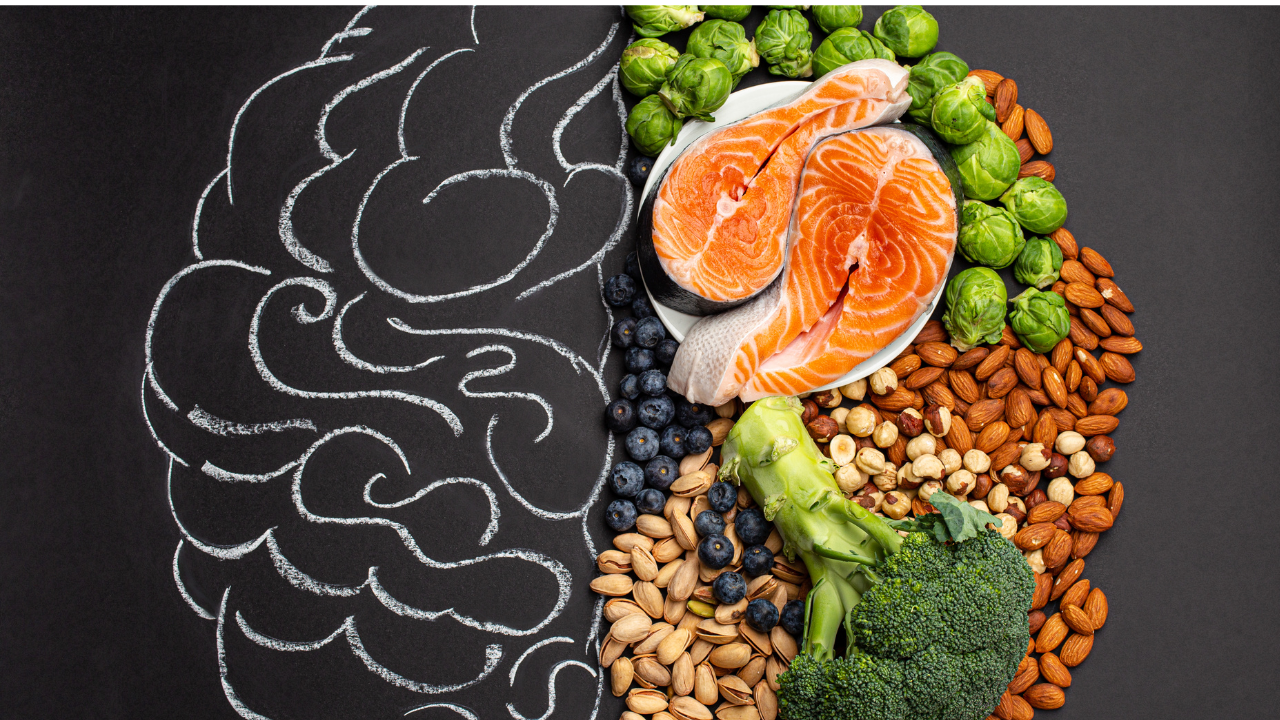
So, what can you eat to keep your gut happy and your brain functioning at its best? Foods that are high in probiotics and prebiotics. Probiotics are the ‘good’ bacteria found in fermented foods like yogurt, kefir, sauerkraut, and kimchi. Prebiotics, on the other hand, are fibers that feed the good bacteria in your gut. You can find prebiotics in foods like garlic, onions, bananas, and oats.
When your gut is in balance, it helps keep inflammation at bay, improves your mood, and supports better brain function overall.
4.How Processed Foods Harm the Brain
Now, let’s talk about the not-so-good stuff—processed foods. These are the kinds of foods that are high in refined sugars, unhealthy fats, and artificial additives. Things like sugary cereals, chips, fast food, and sodas. While they might taste good in the moment, these foods can have long-term negative effects on your brain.
Why? Well, processed foods often cause inflammation in the body, including the brain. Inflammation in the brain can interfere with the way neurons communicate with each other. When this happens, it can lead to problems with memory, concentration, and even your mood. In the long run, this kind of chronic inflammation can contribute to diseases like Alzheimer’s and other forms of cognitive decline.
Processed foods are also high in refined sugars. Eating too much sugar causes spikes and crashes in your blood sugar levels, which can make you feel tired, irritable, and foggy headed. Over time, these spikes can damage the brain’s ability to process information efficiently. Studies show that diets high in sugar can impair memory and learning, and people who consume a lot of processed foods are more likely to experience brain fog.

Processed foods are also full of unhealthy fats, particularly trans fats. These fats have been shown to damage brain cells and increase the risk of neurodegenerative diseases. Studies have even found that diets high in trans fats are linked to a decline in cognitive function over time.
So, while that bag of chips or sugary drink might seem tempting in the moment, it’s important to think about the long-term effects it could be having on your brain. Choosing whole, unprocessed foods can make a big difference in keeping your brain sharp and your mood stable.
5.Food and Mood – The Role of Neurotransmitters
You might be wondering how exactly food can affect your mood. The key lies in neurotransmitters—those special chemicals that help brain cells communicate. Two of the most important neurotransmitters when it comes to mood are serotonin and dopamine.
Let’s start with serotonin. Serotonin is often called the ‘feel-good’ chemical because it helps regulate your mood, making you feel calm and happy. Low levels of serotonin are linked to feelings of depression, anxiety, and even irritability. Here’s the really interesting part—up to 95% of the body’s serotonin is actually produced in the gut, not the brain. This means that the health of your gut, and the foods you eat, play a major role in how much serotonin your body produces.
Foods rich in tryptophan, an amino acid that the body uses to make serotonin, can help boost your serotonin levels. You can find tryptophan in foods like turkey, eggs, nuts, and seeds. Complex carbohydrates like oats and whole grains can also help increase serotonin production because they allow tryptophan to cross the blood-brain barrier more easily, where it can be converted into serotonin.
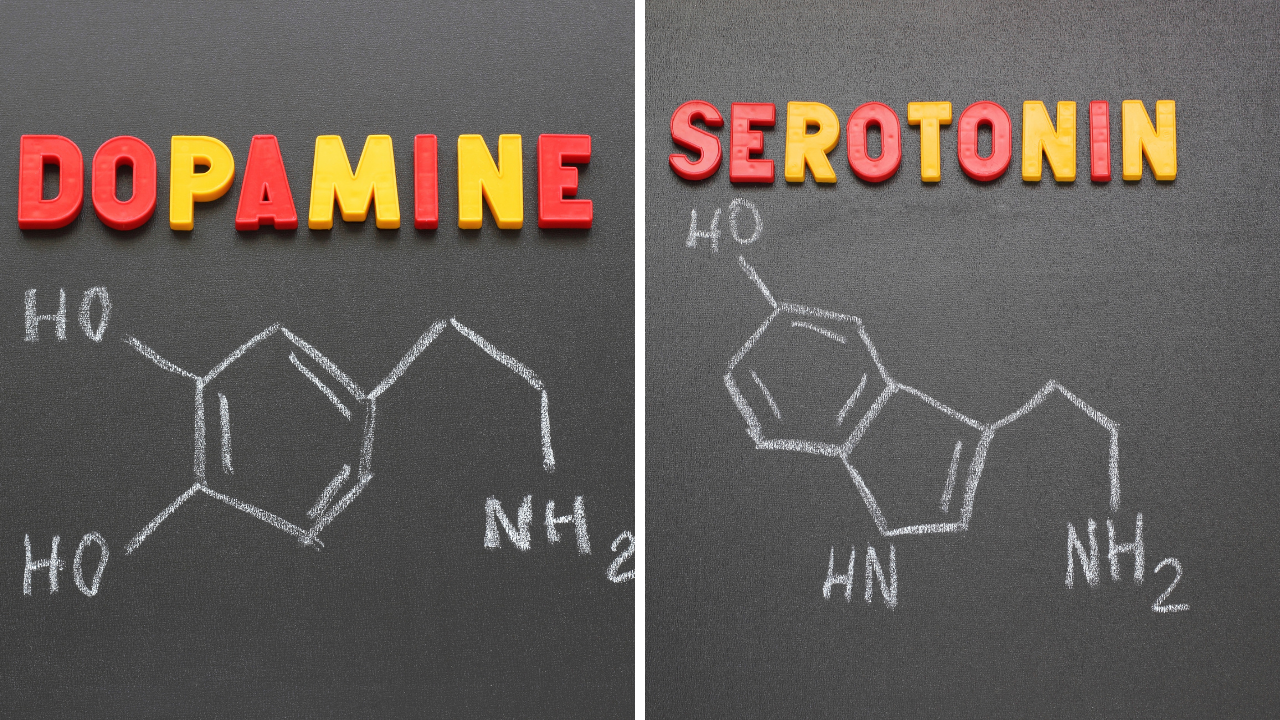 Now, let’s talk about dopamine. Dopamine is another key player in mood regulation, but it works a bit differently than serotonin. While serotonin is all about feeling calm and content, dopamine is more about motivation, focus, and feeling rewarded. When dopamine levels are balanced, you feel alert and energized, and you’re able to focus on tasks. But if your dopamine levels are low, you might feel unmotivated, sluggish, or even depressed
Now, let’s talk about dopamine. Dopamine is another key player in mood regulation, but it works a bit differently than serotonin. While serotonin is all about feeling calm and content, dopamine is more about motivation, focus, and feeling rewarded. When dopamine levels are balanced, you feel alert and energized, and you’re able to focus on tasks. But if your dopamine levels are low, you might feel unmotivated, sluggish, or even depressed
.
Dopamine is made from an amino acid called tyrosine, which can be found in foods like almonds, avocados, bananas, chicken, and dairy products. Eating a diet rich in these foods can help maintain healthy dopamine levels, keeping you feeling focused and motivated.
But here’s the thing—processed foods, sugary snacks, and high-fat diets can disrupt the balance of these neurotransmitters. Eating too much sugar, for example, can cause an initial surge of dopamine, which is why we feel a quick ‘reward’ when we eat sugary foods. But over time, this can lead to a decrease in dopamine receptors, making it harder for the brain to feel that same sense of reward. This can lead to mood swings, irritability, and even cravings for more sugar
The connection between food and mood goes beyond just serotonin and dopamine. There are also neurotransmitters like GABA, which helps reduce anxiety and promote relaxation, and glutamate, which is involved in learning and memory. The foods we eat can affect the production of these chemicals as well, highlighting just how important a balanced diet is for maintaining mental and emotional health.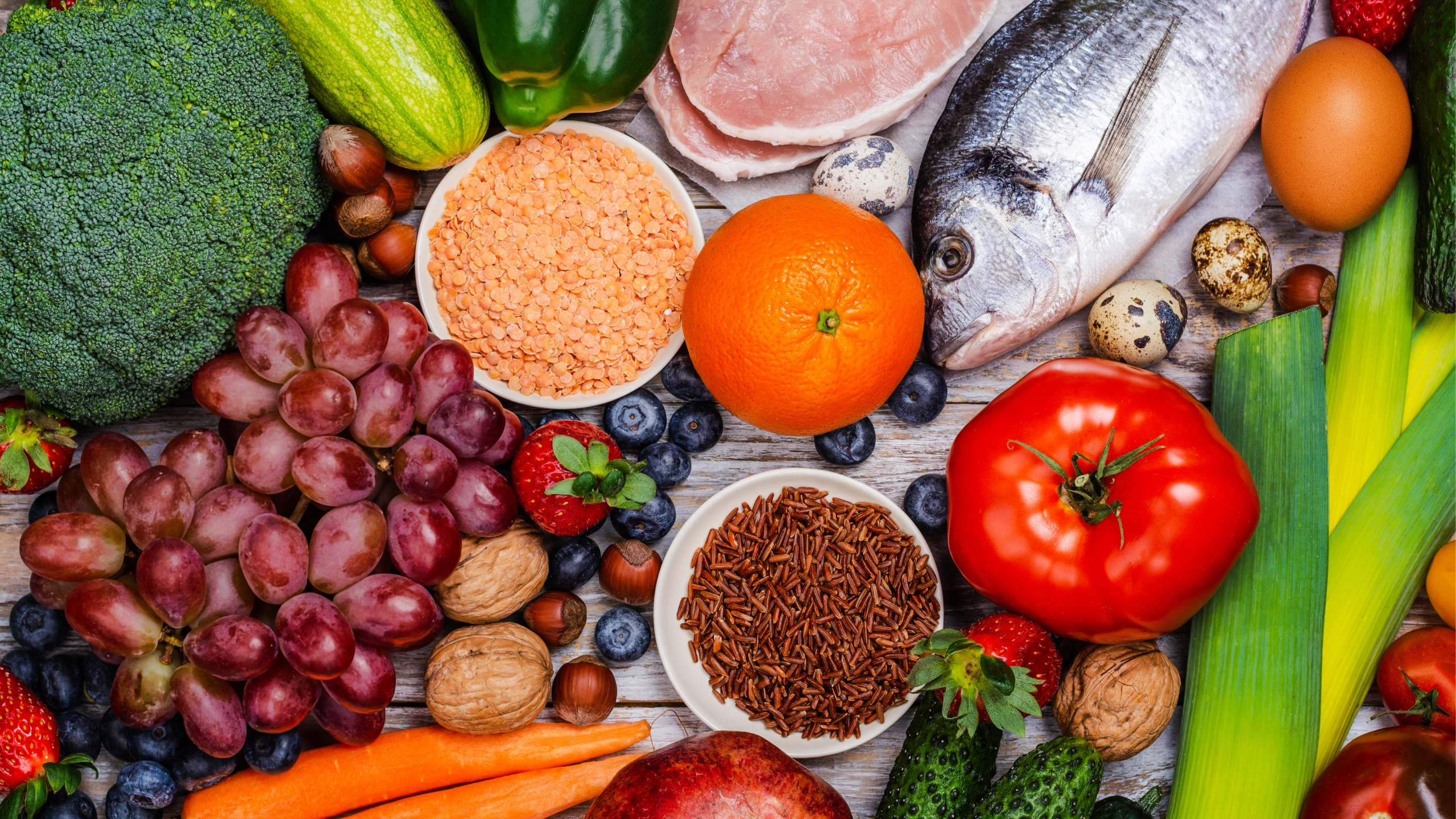
.
By focusing on a diet that includes a variety of whole, nutrient-dense foods, you can help support the production of these important neurotransmitters, keeping your mood balanced and your brain functioning at its best. If you are interested in a free gift summarizing the foods discussed and their impact on brain health and mood click on the link below in the description below. Go on go ahead I don’t bite.
6.Practical Tips for Better Brain Health
Alright, we’ve covered a lot of information!
Even my mouth is hurting, and my brain feels foggy, did eat too much sugar?
So, what are some simple, practical steps you can take to support better brain health through your diet? Let’s break it down:
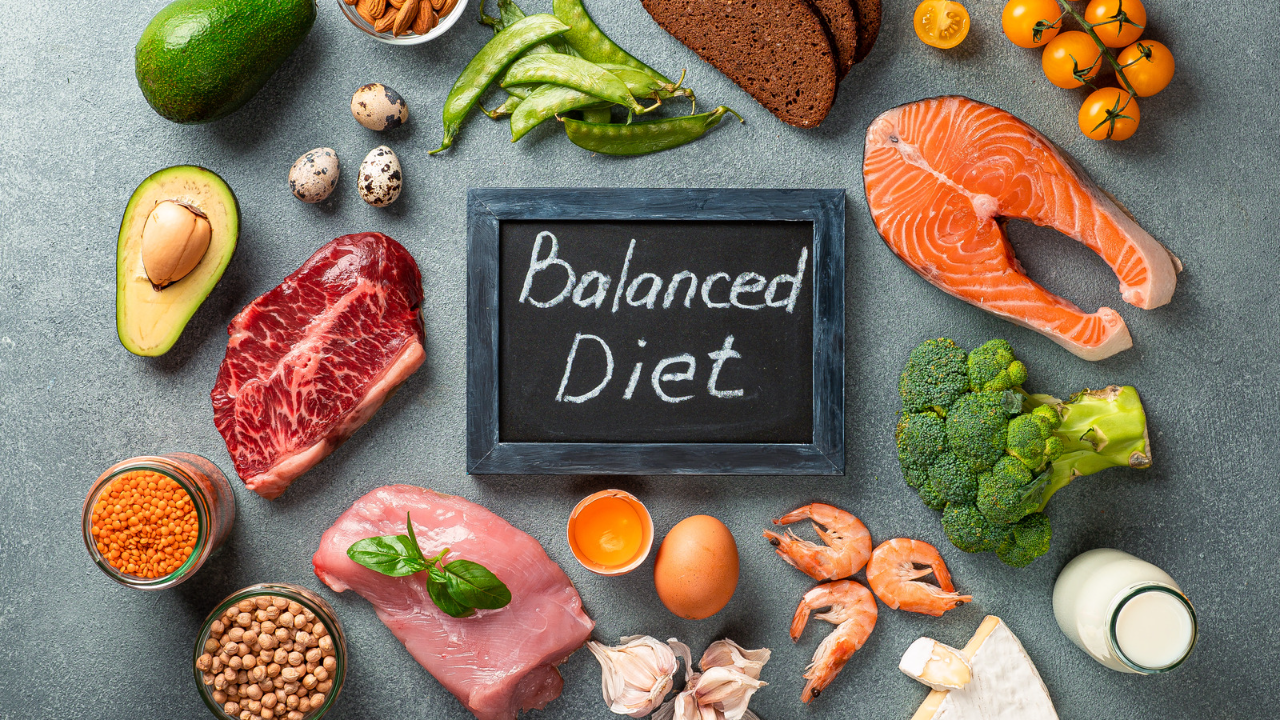
- Eat more whole foods: Whole grains, fruits, vegetables, nuts, seeds, and lean proteins are packed with the nutrients your brain needs. These foods provide a steady source of energy, without the crashes that come from processed foods high in sugar.
- Incorporate brain-boosting snacks: Instead of reaching for chips or sugary snacks, try foods that will actually benefit your brain. Nuts and seeds, like almonds, walnuts, and chia seeds, are full of healthy fats and antioxidants. How many almonds should you eat. About an once or 28g which would translate to 23 almonds. Berries, like blueberries and strawberries, are also great brain-boosting snacks because they’re rich in antioxidants that protect your brain cells. This would be ½-1 cup of blueberries per day.
- Include healthy fats in your meals: Omega-3 fatty acids, which we talked about earlier, are critical for brain health. You can find them in fatty fish like salmon, but also in plant-based sources like chia seeds, flaxseeds, and walnuts. Try to include these in your meals regularly.
- Limit processed foods and sugary drinks: We’ve covered the negative effects of processed foods, so it’s a good idea to cut back on them as much as possible. Try to limit sugary drinks like sodas, which are full of empty calories. Instead, opt for water, herbal teas, or smoothies made with whole fruits and vegetables.
- Incorporate more fiber into your diet: Fiber-rich foods, like whole grains, vegetables, and legumes, don’t just keep your digestive system happy—they also support a healthy gut, which, as we know, is key to brain health. Fiber helps feed the good bacteria in your gut, which in turn supports the production of neurotransmitters like serotonin.

drinking water - Stay hydrated: Your brain is made up of about 75% water, so staying hydrated is essential for keeping your brain functioning well. Even mild dehydration can affect your concentration, memory, and mood. Make it a habit to drink water throughout the day to keep your brain sharp
- Consider supplements (if needed): If you’re not getting enough Omega-3s, B vitamins, or magnesium from your diet, you might want to consider supplements. But remember, it’s always best to get your nutrients from whole foods whenever possible. Talk to a healthcare professional before starting any new supplements.
Making these small, gradual changes can have a big impact on your brain health in the long run. It’s all about giving your brain the right fuel so that it can function at its best.
And if you are interested in what steps you can do to prevent dementia click right here. I’m Dr. John have a wonderful day and Think Your Health.
Sources;



